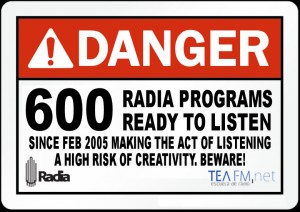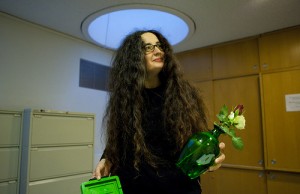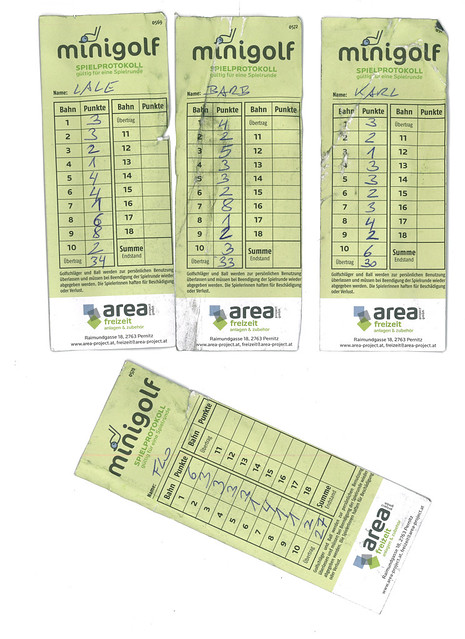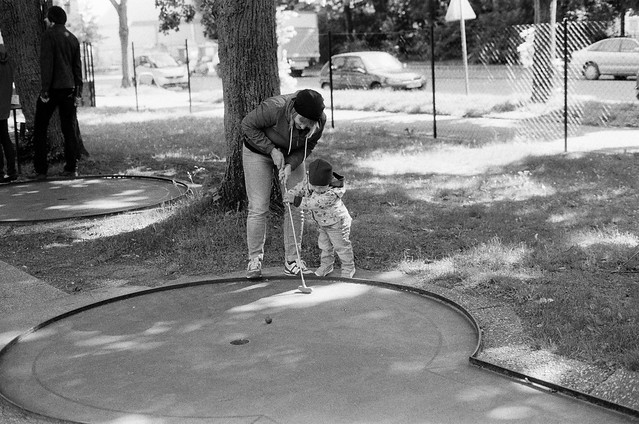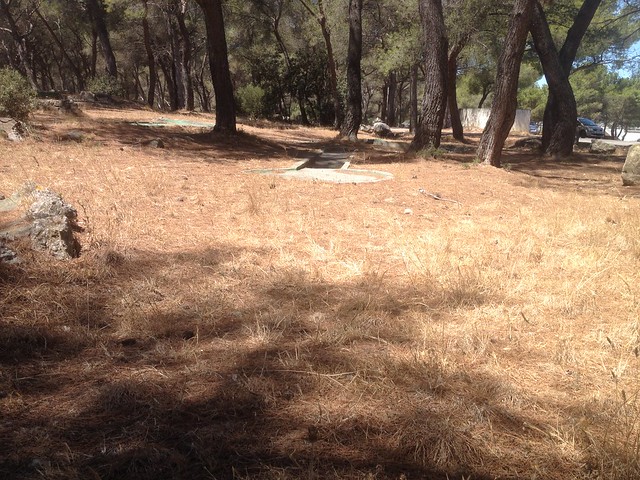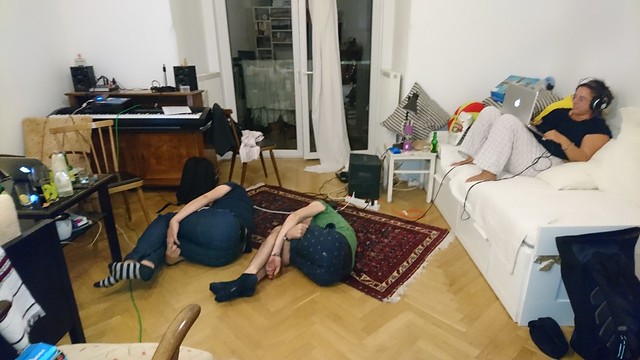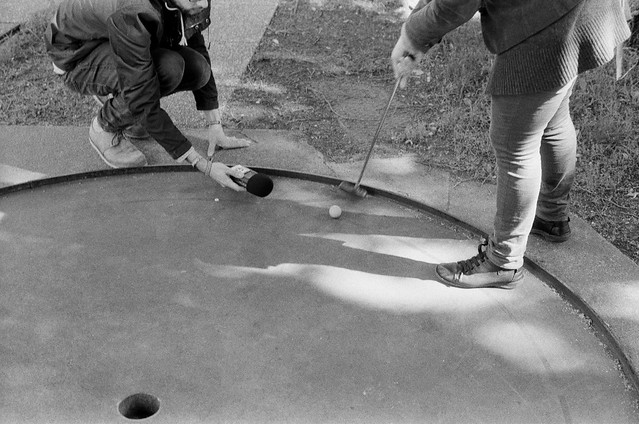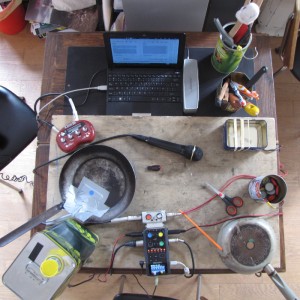
Mardi 12 juillet 2016, 8h du matin. Bruxelles, Quartier Européen, en pleine semaine de négociations autour du TTIP, ce traité entre les États-Unis et l’Europe discuté depuis des mois dans le plus grand secret. La population s’indigne et exprime son mécontentement à travers « TTIP Game Over », une série d’actions de désobéissance civile. 300 personnes se postent devant le lieu des négociations, casseroles et cuillères à la main, pour faire du bruit à l’arrivée des négociateurs. Pendant que le peuple bat la casserole, à quelques mètres, trois individus, situés dans un espace parallèle, créent un autre bout du réel. Quand un slogan est crié à tue-tête sur le trottoir, incitant la fin des négociations, la voix lointaine d’un objet perdu se remémore son terrible chemin vers une grande surface. Quand une cuillère frappe le tintamarre sur une casserole, un ongle gratte le dos d’une poêle striée.
Ce trio explore la situation sonore en portant ce réel dans une fiction radiophonique, comme témoin in situ et acteur de ce prolongement. Le dispositif utilisé reprend celui des activistes : casserole de métal, poêle en fonte, bidon d’huile, boîte de conserve, etc., tout ce qui peut faire du bruit. La démarche consiste à offrir une expérience sonore au public non présent sur place : celui qui écoute la radio, en l’occurence, ici, une radio libre bruxelloise, Radio Panik (www.radiopanik.org). Le collectif a travaillé sur un dispositif d’ustensiles de cuisine et de micros contacts permettant de nuancer les sonorités, de démontrer la portée de la casserole, cet objet de tous les jours et de tout le monde, dans sa dimension musicale.
La démarche est empreinte d’un esprit de liberté et d’une idée de réappropriation : les différents objets-instruments se sont passés de mains en main durant la performance et chacun a pu les expérimenter selon sa sensibilité. Cette pièce sonore est une improvisation.
Tuesday July 12, 2016, 8 am Brussels, European quarter, in the midst of a full week of negotiations about the TTIP, this treaty between the United States and Europe, which has been discussed for many months in deepest secrecy. The population reacts and voices their disapproval through civil disobedience demonstrations, known as “TTIP Game Over.” Three hundred people take up positions at the site of the negotiations, pans and spoons in hand to create a hullabaloo at the arrival of the negotiators. While the people beat their pots and pans, three individuals situated in a parallel space, create another version of reality. While a slogan is shouted loud enough to be heard across the land, encouraging the end of negotiations, the lone voice of a lost object looks back on its terrible journey towards a supermarket. While a spoon hits on a casserole, a nail scratches the back of a grill pan.
This trio explores the auditory soundscape, transporting this reality into a radiophonic fiction, as a witness in situ and as an agent of this ongoing event. The devices used are similar to the ones used by the activists: metal pans, cast-iron pans, oil cans, cans etc., anything that can make a racket. The objective is to recreate a sound experience for the public who is not on site: the radio audience, a community radio from Brussels, Radio Panik (www.radiopanik.org). The coalition has worked on a device based on kitchen tools and contact microphones creating fine nuances of sound, to demonstrate the significance of the pots and pans, these everyday tools for everyman, showcasing their musical dimension.
The proposed procedure is characterised by freedom and an idea of appropriation: the different objects-instruments were passed from hand to hand during the performance and everyone experienced them according to their own perception. This sound piece is an improvisation.
Geronimo | lyl6baz | ArtU
Radio Panik (Bruxelles)
